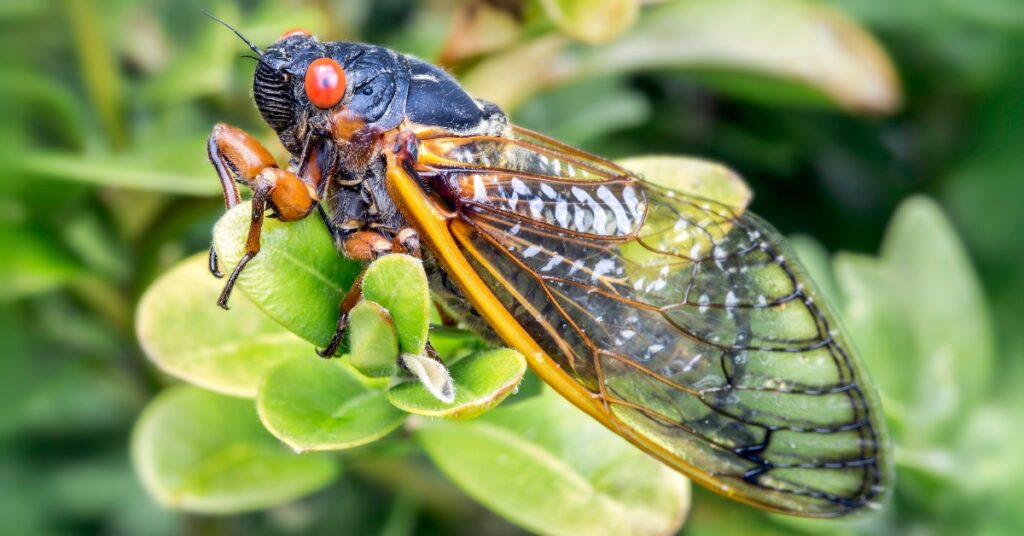Although I’m a huge fan of cold weather, I’ve heard from many friends in the past week who are miserable in the big freeze we’ve been experiencing in Kentucky.
My husband is among the “go away winter” crowd. A few nights ago, he said, “We just have to get through eight more weeks of this and then we’ll be OK.” My internal response went something like, “Speak for yourself, buddy. I’ll be hating on summer.”
But there is one thing that I do enjoy about spring and summer — and this year that thing promises to be extraordinary for some areas of the country. I’m talking about cicadas, those mysterious insects that can live underground for years in their nymph stage and then emerge above ground to make a collective sound best described as nonstop buzzing. When the number of cicadas are great, that buzz is more like a scream in the evenings.

This year will be remarkable because two groups of periodic cicadas will appear.
Brood XIII will emerge from the middle of May to late June in Illinois, Indiana, Iowa, Wisconsin and possibly in Michigan. This brood has a 17-year life cycle, and last emerged in 2007 to mate and lay eggs.
Parts of Kentucky come into play this year with Brood XIX, which has a 13-year life cycle. The website Cicada Mania says Christian County is one of four Kentucky counties where Brood XIX will emerge from mid-May to mid-June. They are also expected in Alabama, Arkansas, Georgia, Illinois, Indiana, Louisiana, Mississippi, Missouri, North Carolina, Oklahoma, South Carolina, Tennessee and Virginia.
The last time these two broods of cicadas emerged in the same year was in 1803. So people who study insects are pretty charged up about 2024.
University of Kentucky extension entomologist Jonathan Larson has called this double emergence of Broods XIII and XIX “a spectacular, macabre Mardi Gras,” according to this NPR story.
- SUBSCRIBE: Sign up for our newsletters
Once they emerge from the ground, cicadas don’t have long to live. They mate in trees, where the females lay their eggs. Then the parents die within a month to six weeks. The eggs will fall to the ground and disappear for either 13 or 17 years, depending on the brood. There are also annual cicadas that emerge every year, as most Southerners know.
So hold on, winter haters. Before you know it, the grass will be green again and your yard might be a real scream.
Jennifer P. Brown is co-founder, publisher and editor of Hoptown Chronicle. You can reach her at editor@hoptownchronicle.org. She spent 30 years as a reporter and editor at the Kentucky New Era. She is a co-chair of the national advisory board to the Institute for Rural Journalism and Community Issues, governing board president for the Kentucky Historical Society, and co-founder of the Kentucky Open Government Coalition.





